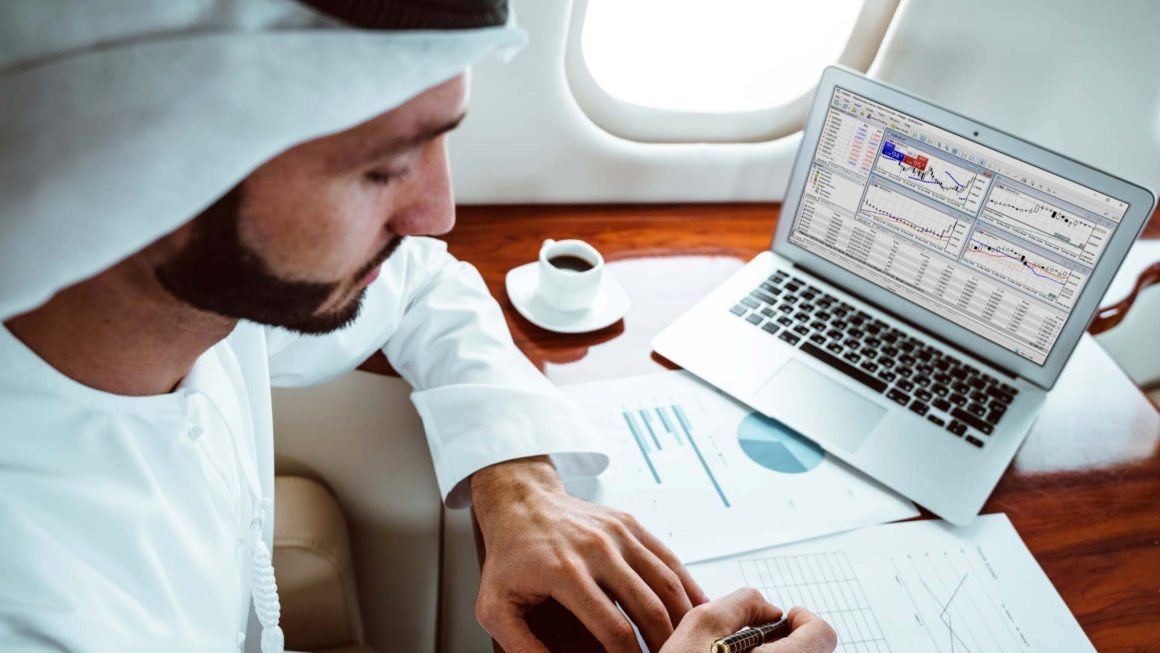Understanding Forex: A Quick Overview
Foreign Exchange Trading, commonly known as Forex, is the global marketplace for buying and selling currencies. It operates as a decentralized market where participants can trade currencies over-the-counter, offering high liquidity and 24-hour access. This dynamic financial market is driven by factors such as global economic trends, political events, and market speculation.
Forex trading involves currency pairs, where one currency is exchanged for another. These currency pairs are categorized into major, minor, and exotic groups. Major pairs include the most traded currencies like the USD, EUR, JPY, and GBP.
The market functions through a network of banks, financial institutions, and individual traders. While the market can be volatile, it provides opportunities for profit through speculation on currency movements. This speculation is often based on economic indicators, interest rate changes, and geopolitical events.
Due to its lucrative nature, Forex attracts a wide range of participants, from institutional investors to retail traders. It offers various trading platforms and tools, making it accessible to a broad audience. However, the complexities of Forex also pose risks, requiring traders to be knowledgeable and cautious.
One of the key components of Forex trading is the use of leverage, which allows traders to control large positions with a relatively small amount of capital. While leverage can amplify profits, it also increases the potential for significant losses.
The Essence of Halal in Islamic Finance
In Islamic finance, the concept of Halal (permissible) plays a central role. It encompasses financial activities that adhere to the principles of Shariah, the Islamic law derived from the Quran and Hadith. These principles emphasize ethical, fair, and interest-free transactions.
A fundamental aspect of Halal finance is the prohibition of Riba, or usury, which involves charging or paying interest. This principle is based on the belief that money should be a medium of exchange, not a commodity to generate profit through interest.
Islamic finance promotes risk-sharing and mutual benefit, rather than speculation and exploitation. This is reflected in financial instruments like Mudarabah (profit-sharing) and Musharakah (joint venture), which align with Islamic values.
Additionally, Halal finance discourages investments in businesses or activities considered Haram (forbidden), such as gambling, alcohol, and pork-related products. Ethical investing is a key component, ensuring that financial activities contribute to societal well-being.
The importance of transparency and justice in financial transactions is underscored in Islamic finance. Contracts should be clear, without ambiguity or deception, promoting trust and ethical conduct among parties involved.
Islamic financial institutions, like banks and investment firms, offer Shariah-compliant products and services to cater to the needs of Muslim investors. These institutions adhere to guidelines set by Shariah scholars to ensure compliance with Islamic principles.
What Makes Forex Trading Questionable?

Forex trading raises questions about its permissibility in Islam, primarily due to the speculative nature and use of leverage. Speculation, akin to gambling, is considered Haram in Islamic finance, raising concerns about Forex trading’s alignment with Shariah principles.
The concept of Gharar, or excessive uncertainty, further complicates the issue. Forex trading can involve unpredictable currency fluctuations, making it susceptible to Gharar. This uncertainty is problematic within Islamic finance, which seeks to minimize unjust risk.
Leverage, a common feature in Forex trading, allows traders to magnify their positions but also their potential losses. This practice is viewed critically in Islamic finance as it involves borrowing and paying interest, conflicting with the prohibition of Riba.
Some Forex brokers offer swap-free accounts, also known as Islamic accounts, to address the issue of Riba. These accounts do not charge overnight interest, aligning with Islamic principles. However, the underlying speculative nature of trading remains a concern.
The potential for manipulation and lack of transparency in the Forex market adds another layer of complexity. Ethical concerns about market practices, such as insider trading or front-running, can make Forex trading appear incompatible with Islamic values.
Despite these issues, some scholars argue that with appropriate modifications, Forex trading can be aligned with Islamic finance. This perspective emphasizes the need for clear guidelines and ethical practices to ensure compliance with Shariah law.
Scholars Weigh In: Diverse Islamic Opinions
Islamic scholars provide varying opinions on the permissibility of Forex trading. These opinions are rooted in interpretations of Islamic law and its application to contemporary financial markets.
Some scholars view Forex trading as inherently Haram due to its speculative nature and association with Riba and Gharar. They argue that the risks and uncertainties involved contradict Islamic finance principles.
Conversely, other scholars believe that Forex trading can be permissible under specific conditions. They emphasize the importance of eliminating Riba through swap-free accounts and ensuring transparent, fair trading practices.
- Scholars advocating for permissibility often highlight the need for educational resources to equip traders with knowledge about ethical trading and risk management.
- They support the development of Shariah-compliant trading platforms that adhere to Islamic principles.
- Emphasis is placed on the intention behind trading activities. If the purpose is genuine wealth generation without exploiting others, some scholars consider it acceptable.
The diversity of opinions underscores the complexity of adapting Islamic finance principles to modern financial systems. Scholars continue to engage in dialogue, seeking common ground and practical solutions for Muslim traders.
Some financial institutions have established Shariah advisory boards to guide their compliance with Islamic principles. These boards consist of knowledgeable scholars who provide insights and rulings on various financial products and services.
Ultimately, the diversity of opinions reflects the dynamic nature of Islamic jurisprudence and its ability to address contemporary challenges. It highlights the ongoing efforts to balance traditional values with modern economic realities.
The Role of Leverage in Halal-Haram Debate
Leverage is a pivotal factor in the Halal-Haram debate surrounding Forex trading. It enables traders to amplify their positions, but its inherent risks raise concerns in the context of Islamic finance.
Leverage involves borrowing funds to increase trading exposure, which typically incurs interest payments. This practice conflicts with the prohibition of Riba, making it a contentious issue for Muslim traders.
Forex brokers often offer swap-free accounts to address the interest issue. While these accounts eliminate overnight interest charges, the potential for high leverage and speculative trading remains a concern.
The concept of excessive risk, or Gharar, is closely related to leverage. High leverage can lead to substantial losses, often beyond the trader’s initial investment. This unpredictability conflicts with the risk-sharing principles of Islamic finance.
A comparison table can illustrate the key differences between leveraged and non-leveraged trading:
| Aspect | Leveraged Trading | Non-Leveraged Trading |
|---|---|---|
| Capital Required | Low initial capital needed | Full capital required |
| Risk Exposure | High, potential for significant losses | Lower, limited to the initial investment |
| Interest | May involve interest (Riba) | No interest involved |
| Compliance | Swap-free accounts may offer compliance | Generally compliant without modifications |
The leverage debate necessitates careful evaluation of trading strategies and risk management practices. Muslim traders should weigh the benefits and drawbacks, considering ethical considerations and Shariah compliance.
Ultimately, the role of leverage in Forex trading highlights the need for informed decision-making and adherence to Islamic finance principles. Traders are encouraged to seek guidance from knowledgeable scholars and financial advisors.
Navigating Forex: A Guide for Muslim Traders
For Muslim traders navigating the complexities of Forex trading, understanding the intersection of Islamic finance principles and market practices is crucial. This guide offers practical steps to align trading activities with Shariah principles.
- Educate Yourself: Gain a comprehensive understanding of Forex markets, trading strategies, and risk management. Knowledge is key to making informed decisions that align with Islamic values.
- Choose the Right Broker: Opt for brokers offering Islamic accounts, which eliminate interest charges. Ensure the broker adheres to ethical practices and provides transparent trading conditions.
- Trade Responsibly: Avoid excessive speculation and high-risk trading strategies. Focus on genuine wealth generation through informed, calculated decisions.
- Embrace Ethical Investing: Prioritize investments in businesses and activities that contribute positively to society and adhere to Islamic values. Avoid companies involved in Haram activities.
- Consult Shariah Advisors: Seek guidance from knowledgeable scholars or Shariah advisory boards to ensure compliance with Islamic finance principles. Their insights can provide clarity on permissible practices.
- Stay Informed: Keep abreast of developments in Islamic finance and Forex markets. Stay engaged with scholarly discussions and emerging trends to navigate changes effectively.
Muslim traders can pursue Forex trading while adhering to their faith by combining knowledge, ethical practices, and active engagement with Islamic finance principles. A balanced approach can ensure financial activities align with both personal and religious values.
FAQ: Key Questions about Forex Trading in Islam
Q: Is Forex trading Halal or Haram?
A: The permissibility of Forex trading is debated among scholars. Some view it as Haram due to speculation and interest, while others consider it permissible with conditions like swap-free accounts.
Q: What is a swap-free account?
A: A swap-free account is a trading account that does not incur overnight interest charges, aligning with Islamic finance principles by avoiding Riba.
Q: How can Muslim traders avoid Haram practices in Forex?
A: Muslim traders can avoid Haram practices by choosing Islamic accounts, avoiding excessive speculation, and seeking guidance from scholars or Shariah advisors.
Q: What are the risks of using leverage in Forex trading?
A: Leverage can lead to substantial losses beyond the initial investment, creating excessive risk (Gharar) that conflicts with Islamic finance principles.
Q: How do scholars view the role of speculation in Forex trading?
A: Scholars have diverse opinions. Some equate speculation with gambling, making it Haram, while others believe that informed, ethical trading can be permissible.


I appreciate how this article has made a complex topic more approachable for readers like myself who aren’t too familiar with Islamic finance principles.
‘Embrace Ethical Investing’ – This resonates with me as investing should be about more than just making money; it’s also about contributing positively to society.
The guide for Muslim traders is quite handy. It emphasizes the need for education and ethical practices, which is essential for all traders, not just Muslims.
It’s interesting to see the different scholarly opinions on Forex trading in Islam. It seems there isn’t a one-size-fits-all answer.
It’s clear that navigating Forex as a Muslim trader requires careful consideration of many factors, from leverage to ethical investing.
I was unaware of swap-free accounts before reading this. It’s good that there are options for those wanting to avoid Riba in their trading activities.
‘Choose the Right Broker’ – This part stood out to me. Ensuring your broker is compliant with ethical standards seems crucial for Halal trading.
Really insightful article. I learned a lot about how Forex trading works and the importance of ethical investments in Islamic finance.
The explanation about leverage was super helpful. I didn’t realize how it could potentially conflict with Shariah principles due to the interest involved.
This article has shed light on the concept of Gharar and its implications in Forex trading, something I hadn’t considered much before.